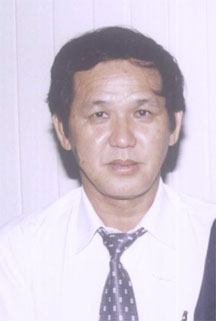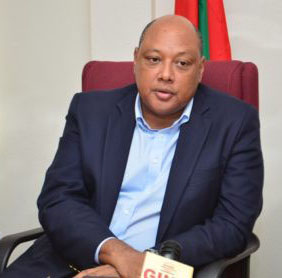The Court of Appeal will on Thursday hear an application for an appeal of the court’s decision on the presidential term-limit to be referred to the Carib-bean Court of Justice (CCJ).
Sunday Stabroek was recently told that all the parties involved– the Attorney General and former Speaker of the National Assembly Raphael Trotman, who were named as the respondents in the original court action, and Cedrick Richardson, the private citizen who had filed the action in the High Court— were notified of the upcoming hearing.
In February, the Appeal Court had upheld the previous ruling made by former acting Chief Justice Ian Chang that the presidential term-limit was unconstitutional, resulting in both respondents filing applications for leave to have the matter heard in the CCJ.
Before a matter can be heard by the final court, leave to approach has to first be filed and that application heard.

In an affidavit in support of the notice of application for leave to appeal to the CCJ, drawn up by attorney Roysdale Forde, Trotman had stated that the majority of judges erred in law in several instances. According to the notice, the relief being sought from the CCJ is for the decision of the Court of Appeal to be set aside or reversed.
Persons close to the matter as well as observers expect that the Appeal Court will expedite the matter and that the CCJ would hear and make a final ruling before the 2020 general elections.
A ruling by the CCJ will either allow or prevent a potential presidential run by opposition leader Bharrat Jagdeo, who previously served two terms as president and had been constrained from a bid for a third term by the law.
Richardson had approached the High Court challenging the two-term restriction created by amendments to Article 90 of the Constitution that were enacted in 2001 after the bipartisan constitution reform process.
On July 9, 2015, Justice Chang had ruled that the presidential term-limit was unconstitutional without the approval of the people through a referendum. The amendments to the constitution had seen the insertion of two clauses to allow for re-election only once.
Subsequently, attorneys for both respondents filed an appeal. By majority decision on February 22, the appellate court upheld Justice Chang’s ruling.

The Court of Appeal heard the case for the first time in January and made its decision based on written submissions submitted by each party.
In the ruling, Justice Carl Singh, then acting Chancellor, had argued that the decision of the term limits rests with the people via a referendum and not the National Assembly. Justice Singh had stressed that people should choose whom they “please to govern them” and noted that this is essential to all other rights.
Act No 17 of 2000 “waters down” the opportunity of the people of Guyana to elect the president of their choice though this is present in Articles 1 and 9, he said.
Justice Singh said changes to the features of these articles could only be done “by the people themselves” via referendum. He said that when the Act No 17 “altered” the provisions of Article 90, resulting in an increase in the number and categories of disqualified persons who the political parties might have considered as their candidate, it “effectively suppressed the right of the people to freely choose those persons whom they feel should represent them.” He said that this right of the people to choose is now controlled by the National Assembly.
Justice Roy later concurred and did not make any submissions.
Justice Yonette Cummings-Edwards, in her dissenting opinion, expressed the view that Act No 17 “did not require approval by referendum.” She said that the amendment to Article 90 was not unconstitutional as Justice Chang had ruled. “The amendment was validly done,” she said, while adding that Article 90 did not either directly or indirectly alter, dilute, affect or amend Article 1 and Article 9.
Moreover, she posited that it was Parliament that set the presidential term-limit and later explained that it was the electorate who gave the National Assembly the power to amend the Constitution.





